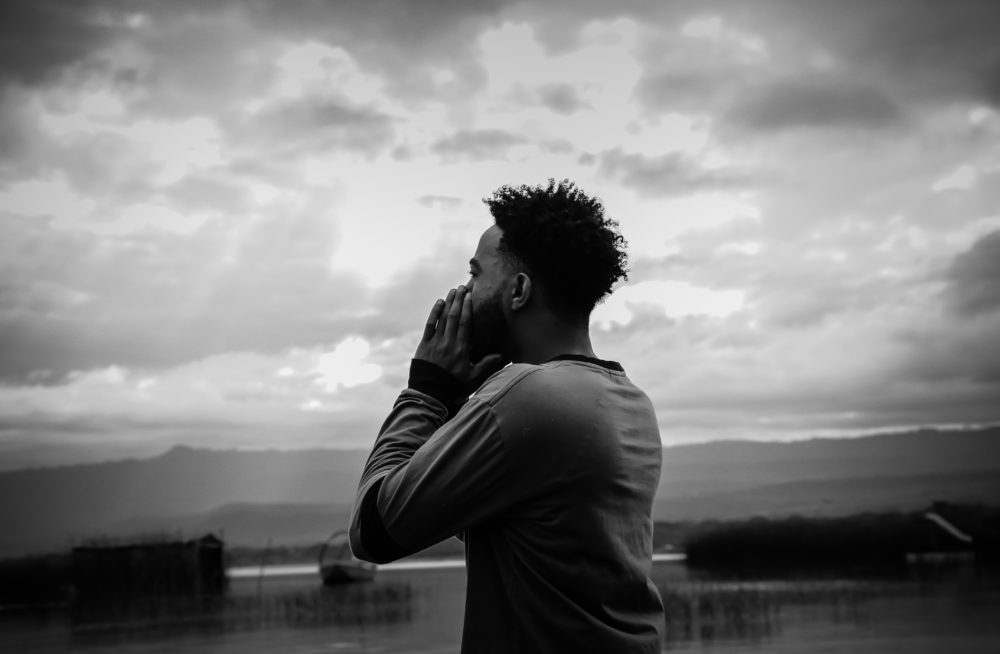When we meditate regularly, strong emotions often come swirling in like a vortex, or a hurricane. What can meditation teach us about experiencing our emotions?
Pema Chodron’s book, How to Meditate, has a wonderful section on this. She writes, “You have to get dirty with your emotions. Meditation allows us to feel them, live them, and taste them completely.”
If we’re new to meditation, we can easily get frustrated when we leave a meditation session more wound up than we were before. Isn’t meditation supposed to make us calm and happy?! Well, yes and no. In the long run, cultivating our awareness will benefit every aspect of life. But we’re chasing a dream if we think that won’t come without some bumpy terrain.
Most of the time, the bumpy terrain arrives courtesy of our emotions. Here we are, just trying to stay with our breath, and in comes this painful memory or feeling of inadequacy or threat of boredom. When we experience our emotions, our first instinct is to flee. We want to run from whatever has come up, and take shelter in something easier.
But it’s in these moments of turmoil that it’s most vital for us to stay present. Instead of allowing our emotions to distract us, meditation asks us to experience our emotions fully. Sit with them. Listen to them.
Sometimes I wonder if in our minds we see meditation as a way to numb ourselves. A way to create an environment filled with “om” and silence and calm breathing. But in practice, meditation often stirs us up, wakes us up, asks us to deal with all the things we are avoiding.
In the same way the process of spring cleaning our house is messy before it’s cleaner, our minds will inevitably go through seasons of mess before we arrive at awareness.
When we “hold the experience,” as Chodron suggests, we begin to notice patterns. We may notice that we retreat to a place of comfort (Netflix! Chocolate! Beer!) and let our emotions distract us totally off the path. We may find ourselves scrambling for self-justification and control. (This is why I’m right, this is why he’s wrong, they are incompetent because…) We may move toward a plan. (I am going to fix this, I am going to get back at her this way…) We can learn so much if we stay with our emotions and recognize these old habits rearing up.
Ken McLeod notes we have two powerful options when we experience our emotions rearing up: we can choose not to act out, and we can choose not to repress them. When we act out, we are diverting the emotion into the action. It’s all a grand diversion tactic. But what that means is that we don’t actually experience the fullness of the emotion. We short-circuit our own experience by jumping into a (probably unhealthy) response.
Repression is another diversion tactic. Like an ostrich, we wrongly presume we can bury our heads in the sand and have the emotion go away. But that energy is still going to swirl, even if it subsides briefly. The energy of the emotion will keep coming up until we experience it, breathe into it, allow it to be.
Meditation is a worthwhile venture, but it’s a messy one. It’s brave to venture into this bumpy terrain and hold the experience of our emotions. It takes courage to watch our patterns and habits jump all over the place when we feel emotional intensity. It’s an act of strength to be patient enough to allow the emotion, and to invite the awareness.
How can you be brave in meditation this week? Can you find a way to choose not to act out, and not to repress your emotions?
What if you just experienced your emotions this week?
This post is part of the Paramita Project, where I’m practicing one paramita, or virtue, every month for ten months. You can read all my posts on January’s paramita, meditation, here.




